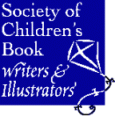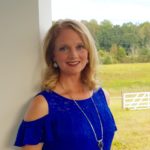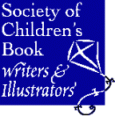
I have all these stories whirling around in my head from New York — and I truly want to offer you an inside peek at what it’s like to attend one of these writing conferences.
Here’s how it started for me. Last November, I discovered National Novel Writing Month to be a great excuse to pull out my much-neglected children’s novel I’ve been trying to write for years. Like thousands of people, I loved feeling part of the NaNoWriMo masses, all of us motivated to churn out 50,000 words of something during the month of November.
About a week into this, my wonderful husband emailed and asked if I wanted to go to this SCBWI conference in New York. He said it would be a fun trip for us — also an excuse to celebrate his recent decision to start a new job/ career. I signed up the next day and discovered there was a one-day writing workshop being offered for the first time ever. So I signed up for that too!
Later, I found out that the Writer’s Intensive Workshop sold out within 24 hours, and the waiting list included hundreds of people. So that was my first hint that this was God’s timing.
Although I’ve attended one small SCBWI conference in my local region, this was my first national. At these conferences, you have to put aside any of your shy, introverted nature (if you’re like me) and just start talking to people! Which I did. And here are some of the cool things that happened.
The first day, there were 225 of us wannabe writers. After listening to a joint panel with several agents and editors, we divided into assigned tables of nine writers and one editor or agent. Each of us brought ten copies of a 500-word writing sample and read it out loud to the group. After we read, the group members critiqued us, and the agent or editor offered us a professional opinion.
I was a nervous wreck until the first girl read her piece, then I just relaxed and realized what a great opportunity this was. Our editor was absolutely fantastic — she asked questions to clarify, told us what she’d think if this piece came across her desk, told us areas to work on, explained what it reminded her of, shared news about other books on similar topics, etc.
Like many of the editors, she told us she doesn’t even LOOK at unsolicited email queries — she said she deletes them right away.
She also said she has to first look at what the agents send her because they call and move things along (!). So from this, I decided finding an agent is pretty important — except you don’t want to find a bad agent who never sells anything and who nobody likes! This editor says her “slush pile” (of unsolicited manuscripts) is huge, and it’s the bottom of her priority list to get to it. “But all of us would like to discover new talent,” she explained. “So we do eventually get around to it. Just give us about six months.” Agony!
I got some really good feedback — both positive and negative — and now I have lots of specific areas to work on. OK, so then we went to lunch — and I ate with a writer, illustrator, and editor, and we discussed our favorite children’s picture books. All those nights reading out loud to my kids — I’m an “expert” in something after all! It was so fun!
Our afternoon session was similar to the morning, except this time I was with a different group of people and had an agent overseeing the critique. She brought a totally different point of view — focusing more on marketability, since she makes her living off 15% of your book sales! She had a great sense of humor and was also thorough in her critique. In my morning group, most people were writing middle grade or young adult novels, but in the afternoon group, most were working on picture books or poems — so it was an interesting mix.
The amazing thing is — there was a lady in my second group who lives in Japan! She’s an American, but has lived in Japan for 13 or 14 years, and we hung out a lot together during the rest of the conference. Since my novel involves a Japanese character, we really connected; bonded even!
The day ended with another panel of editors, as well as a motivating talk from Newbery-Award winner, Linda Sue Park. She reminded us the most important part of our writing is to love what we do — because even if we end up with a book contract, we’re still at the mercy of book sales and reviewers! We must absolutely love our characters and stories — because that’s what will keep us going.

The next day was the opening of the main conference, and SCBWI executive director, Lin Oliver, stated that this was the largest winter conference ever, with over 1,000 attendees from 44 states and 9 countries. I talked to so many people, it’s all a blur right now — but I do have several business cards to sort through.
On Saturday, I was captivated by Susan Cooper’s speech on the power of our childhood imaginations. She’s the author of The Dark is Rising. She shared what it was like to grow up in England, listening to opera on the BBC radio (no TV) and being acutely aware of the evil in the world, as she saw the sky light up red when London was being bombed in the war.
After this talk, I went to hear an editor from Penguin share about children’s series — how they’re created, what publishers are looking for, etc. Then we all attended a sit-down luncheon, where I “happened” to sit down next to a man who is an English professor in Tokyo! Another new friend who encouraged me to keep writing about Japan.
Our speaker for the luncheon was Ann Brashares, author of the highly successful YA series, The Sisterhood of the Traveling Pants. Ann shared the behind-the-scenes of how she wrote that book (on maternity leave from her editing job, while expecting child #3). “The green of the cover will always remind me of morning sickness!” she confessed. She lives in NYC and told us her novel’s long-awaited release date was none other than September 11, 2001. Her priorities changed completely that day, and she almost forgot about “the book.”
The last great speaker we heard was Katherine Paterson, author of Bridge to Terabithia, which you probably know is a new movie, coming out this week. Katherine says she’s seen the movie three times, and “it has my approval.”
I was most interested in hearing her speak since she’s a Christian, daughter of missionaries to China, and the mother of four children (two biological, two adopted). Katherine said she started writing when her kids were young “because at the end of the day, I needed something that wasn’t eaten up, dirtied up, or torn up.”
I loved her speech. She’s 74 years old and has seven grandchildren. Out of everything she said, what stuck with me most is how she’s integrated writing into her family life so successfully. A lesson for all of us!
She told a funny story of how she recently went to Sweden to receive an award, and she brought her family with her. After they had their picture made with the crown princess of Sweden, her five-year-old granddaughter whispered, “Nana, are we famous now?” Adorable!
I know this summary has gotten so long — but I wanted to keep it to one post. What Katherine Paterson and Susan Cooper both emphasized is going deep within ourselves to “write the stories that no one else can write.” And quit worrying that you’re not good enough — just write!
If you love children’s books and have ever thought of writing or illustrating one, I highly recommend an SCBWI conference. You’ll definitely leave inspired.
Here’s a geeky picture of me, ecstactic, holding my freshly signed copies of Katherine Paterson’s Bridge to Terabithia and Jacob Have I Loved (which she graciously inscribed to my children!)

Since we also brought our ten-year-old son with us, other thrills of the trip included watching him and his dad ice skate in Central Park and hearing their stories of sightseeing while I attended the conference. (I really think I had more fun, but they’re convinced I missed out!)
New York City seems to be a safe, clean place — much different than when I was there in the early 90s. There were no street musicians glaring at you if you walked by without giving them a tip, and I never felt unsafe.
We saw lots of women pushing baby strollers in three-inch spiked boots. Now there’s the real mystery — how do New Yorkers walk in their gorgeous shoes?






8 Responses to My View: SCBWI New York Conference